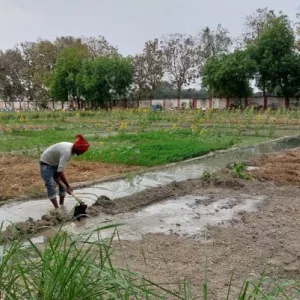Bridging the gap between traditional and regenerative agriculture with the agro-biodiversity index
Regenerative agriculture presents a holistic approach to farming that not only focuses on enhancing soil fertility, carbon content, and nutrient availability but also integrates beneficial insects, birds, and other animals into the agricultural system. However, to evaluate the impact of resource-intensive and regenerative agricultural practices on agro-biodiversity, the development of an agro-biodiversity index is necessary. The world is facing a

Bridging the gap between traditional and regenerative agriculture with the agro-biodiversity index
Regenerative agriculture presents a holistic approach to farming that not only focuses on enhancing soil fertility, carbon content, and nutrient availability but also integrates beneficial insects, birds, and other animals into the agricultural system. However, to evaluate the impact of resource-intensive and regenerative agricultural practices on agro-biodiversity, the development of an agro-biodiversity index is necessary.
The world is facing a rapid decline in biodiversity, including vital agro-biodiversity that plays a crucial role in supporting agriculture and food production. Agro-biodiversity encompasses cultivated crops and livestock as well as wild plants, animals, and microorganisms that contribute to essential ecological processes such as pollination, nutrient cycling, and pest control.
To combat this decline and improve nutrient outcomes, it is imperative to adopt sustainable farming practices that prioritize nutrition and biodiversity.
Regenerative agriculture presents a holistic approach to farming that not only focuses on enhancing soil fertility, carbon content, and nutrient availability but also integrates beneficial insects, birds, and other animals into the agricultural system. However, to evaluate the impact of resource-intensive and regenerative agricultural practices on agro-biodiversity, the development of an agro-biodiversity index (ABI) is necessary.

